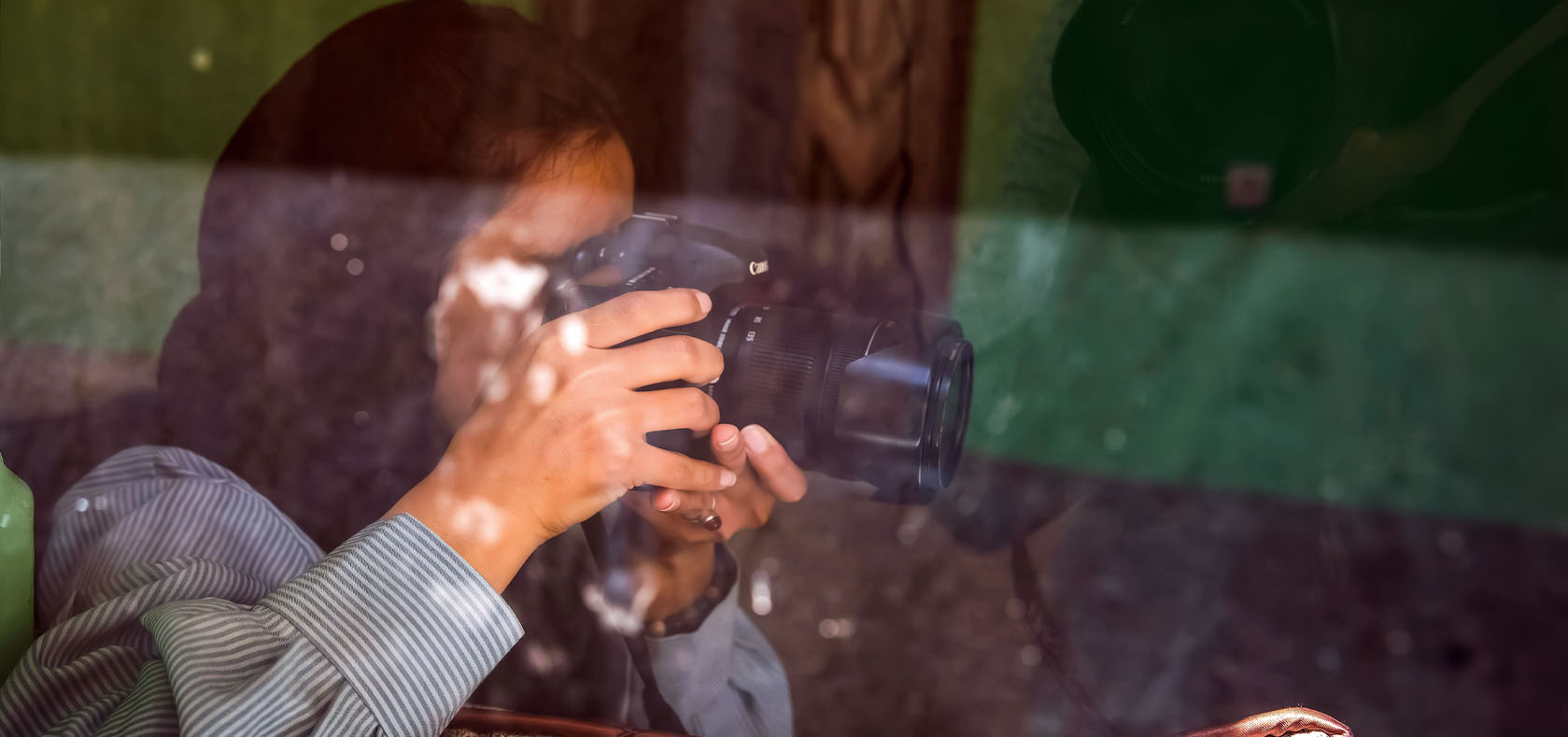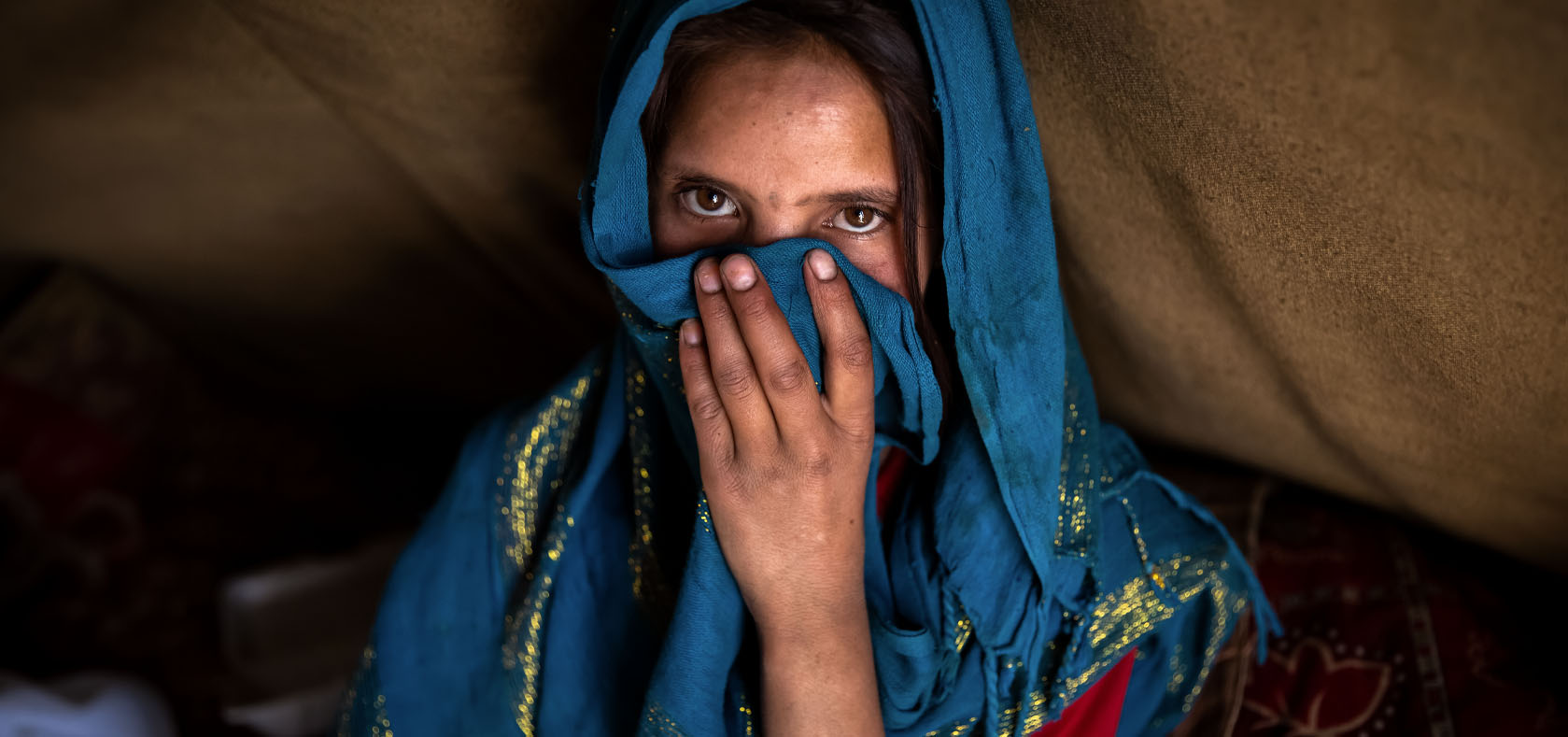Storytelling training inspires Afghan women to believe in themselves
Date:

As a journalist, Firoza* was passionate about her profession. But her life and career were dramatically upended by the Taliban takeover on 15 August 2021.
“I wanted to continue my work. But it wasn’t long before I was being followed and tracked. A few months after the fall, I was working with an external media outlet, but I started receiving threatening and anonymous messages, warning me of death and kidnapping. That is why I now live in isolation,” she writes.
Firoza’s story is among the more than 100 first-person accounts written by participants in UN Women Afghanistan’s human impact storytelling training, some of which were included in “A glimpse into the lives of Afghan women: stories of struggle and resilience,” a joint UN Women and IOM photo exhibition held in New York and Geneva from 11–22 March.
In a country where women are banned from university education and most types of employment, 147 women journalists and non-journalists living in Afghanistan participated in the storytelling training in late 2023.
“The impactful training sessions … underscored the commitment of the United Nations to support Afghan women amid challenging conditions. The trainings put us on the path of learning once again and it is evident that more such initiatives are required to empower Afghan women fully,” says Nahla*, one of the course participants.
Delivered online, by former foreign correspondent and current UN Women consultant Jen Ross, the four-module course provided an overview of different human impact reporting and storytelling approaches. It covered how to ask the right questions, obtain informed consent, and ensure safety and ethical considerations when interviewing Afghan women (including survivors of violence). Participants were paired for an interactive exercise to interview one another about the impact of the Taliban takeover on their lives, followed by a final session focused on writing features and first-person narratives.
“This was the most gratifying experience I’ve had yet as a trainer,” says Ross. “The women were so excited to learn, so engaged and appreciative, and so eager for more training. I could see them becoming empowered. At the same time, it was heart-wrenching to read their stories. Women simply should not be facing these abuses and restrictions.”
The course was delivered online in English, with all materials in Dari. As a final assignment, participants interviewed a woman in Afghanistan for a first-person story. A total of 104 final assignments were submitted, the strongest 80 of which were sent for translation, editing and publication on UN Women Afghanistan’s After August website.
“In hard conditions, such as now, female journalists cannot get any trainings to boost their capacity, but your organization … has opened the way for the training of women, especially journalists,” says course participant Gul*. “This programme has empowered us to write about violence against women and raise our voices about what Afghan women are suffering throughout their lives. We really appreciate your work for women, and I hope you continue such useful programmes in the future.”
The relationships built among participants during the programme blossomed organically into communities of women supporting women. Collectively, they now form a network of trained journalists and activists who now know how to interview and tell effective stories. Some course participants were later hired by UN Women to collect first-person stories following the earthquakes in Herat, and about women receiving cash assistance to prepare for winter.
“Afghan women have stories, and access to stories that no one else can tell. In a context where their ability to speak, move and learn is increasingly eroded, providing opportunities and spaces where Afghan women can tell their stories in their own words creates an archive of resistance,” says UN Women Special Representative in Afghanistan, Alison Davidian.
Among the new stories are accounts like journalist Atefa’s*: “I understand that working as a journalist is like stepping on a minefield where, at any moment, you might step on a mine and be blasted into the air. Yet, I accept this risk and continue my work with unwavering determination. I aim to be an example for other Afghan girls, proving that we will never be defeated, no matter the circumstances.”

Sohaila*, a former parliamentary reporter from Takhar, was also featured in the recent photo exhibition: “[M]ost media outlets in Afghanistan do not hire female employees and journalists. Despite that, I was not discouraged and started collecting stories of women and presenting them through online platforms to ensure that the voices of Afghan women are heard and not stifled. This is the least I can do as a woman for other Afghan women.”
Meanwhile, course participant Anisa* praised the training as life-changing: “Words are powerless to express my gratitude …Thank you for inspiring me to believe in myself and to never give up on my dreams! Thank you for being a shining light in my life and inspiring me to be the best version of myself.”
* All participants’ names have been changed, for their protection. The photographs used in this story and the exhibition have also been purposely mismatched to their stories, to ensure their safety.